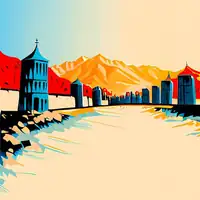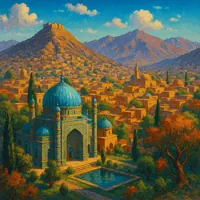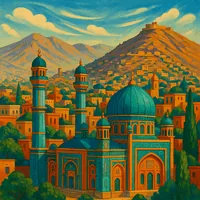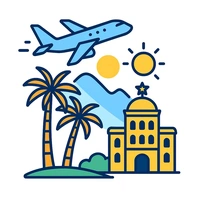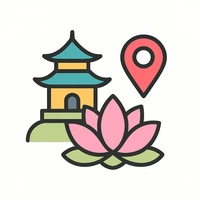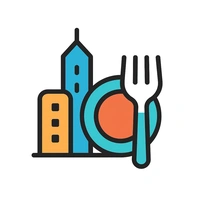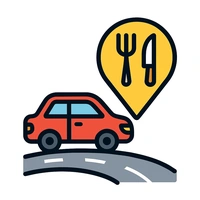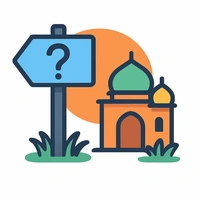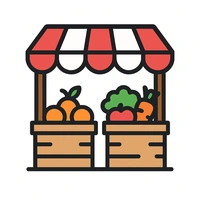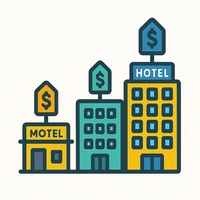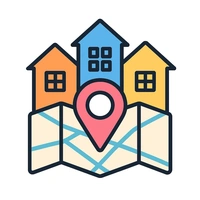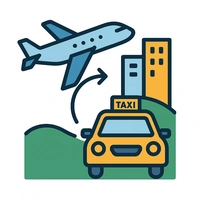Kabul, Afghanistan’s capital, stands as a vibrant tapestry of historical epochs and resilient spirit. Nestled in a valley surrounded by rugged mountain landscapes, it uniquely intertwines ancient Silk Road legacies with modern-day pulse. The Kabul River, slicing through the city, breathes life into its bustling bazaars and vibrant cultural enclaves. Notably, the Gardens of Babur offer a serene glimpse into Mughal history, while the city's traditional tea culture fosters communal resilience amidst diverse influences.

Destinations

Travel Tips & Planning

General City Overview
Notable points about Kabul
- Historical Significance: Kabul is one of the oldest cities in the world, with a history that spans over 3,500 years. It has served as a cultural and political hub in the region, having witnessed the rise and fall of multiple empires, including the Mauryans, Mongols, and the Mughals. For history enthusiasts, Kabul offers a rich experience of ancient monuments and memories of civilizations past.
- Cultural Diversity: As the capital and largest city of Afghanistan, Kabul is a melting pot of various ethnic groups, including Pashtuns, Tajiks, Hazaras, and Uzbeks. The city's vibrant tapestry of languages, traditions, and festivals offers an intriguing cultural fusion for visitors and residents alike.
- Educational Hub: For those seeking academic pursuits, Kabul is home to several prestigious institutions such as Kabul University and the American University of Afghanistan. These institutions attract scholars and students from both within and outside the country, enhancing the city’s intellectual vitality.
- Unique Geography: Nestled in a valley between the Hindu Kush mountains, Kabul is characterized by its unique geographical setting, offering picturesque landscapes and challenging terrains for adventurers. This makes it an attractive destination for nature lovers and adventure seekers.
- Political Center: As the political epicenter of Afghanistan, Kabul hosts the majority of the country's governmental institutions, foreign embassies, and diplomatic missions, making it a key player in shaping national and international policies.
- Vibrant Markets: The bustling bazaars of Kabul, such as the famous Chicken Street, provide a colorful and lively shopping experience. These markets offer everything from traditional Afghan handicrafts to modern goods, appealing to shopaholics and culture seekers.
- Culinary Delights: Food enthusiasts will appreciate Kabul's diverse culinary offerings, where traditional Afghan dishes such as kabuli pulao, mantu, and ashak are celebrated. The city's unique blend of flavors reflects its rich cultural tapestry and appeals to food connoisseurs around the world.
- Resilience and Reconstruction: Despite decades of conflict, Kabul has demonstrated remarkable resilience and recovery. Its ongoing reconstruction efforts and development initiatives highlight the indomitable spirit of its residents, making it an inspiring case of urban resilience.
- Family-Friendly Attractions: For families, Kabul offers attractions such as the Kabul Zoo and Bagh-e Babur, providing recreational and educational opportunities for children and adults. These spaces offer a glimpse of Kabul's commitment to preserving heritage while providing contemporary family-friendly experiences.
- Unique Role within Afghanistan: Unlike other Afghan cities, Kabul's unique blend of modernity and tradition, coupled with its role as the administrative and cultural hub, sets it apart. Its metropolitan nature and international touch contrast with the more traditional and rural characteristics of Afghanistan’s other cities, making it a city of contrasts and a symbol of hope for the future.
Summarized User Reviews
The morning air in Kabul is something else — crisp, quiet, and heavy with the scent of fresh naan. The mountains make you feel both small and deeply alive.
It’s a city of contrast — beauty and hardship live side by side. The people are warm, but the tension in the air never fully leaves.
Walking through the old bazaars, you see a Kabul that refuses to be forgotten. There's music in the conversations, even if it's cautious now.
As a foreigner, it’s hard to feel safe exploring freely. But I’ll never forget the chai shared with strangers who treated me like family.
There’s a raw poetry to this city — snow-dusted hills, kites over rooftops, laughter despite everything. Kabul doesn’t try to impress, but it leaves a mark.
Interactive Word Cloud for Kabul

